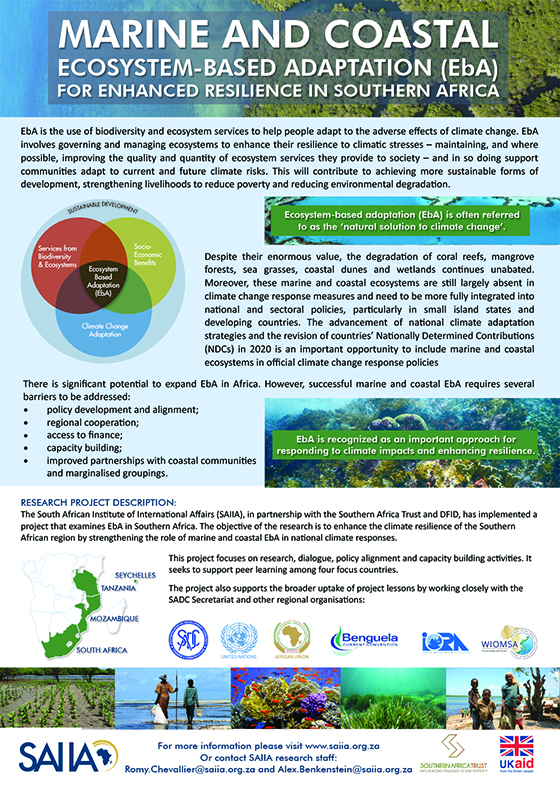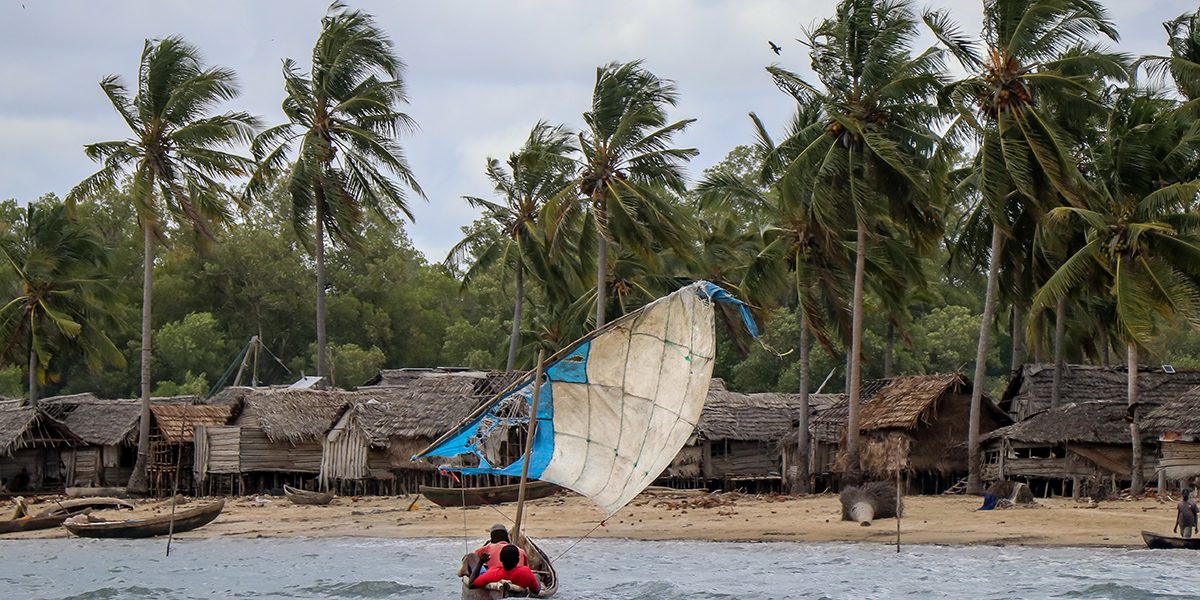Recommendations
- Improve regional institutions and national policy audiences’ understanding of the role of marine and coastal Ecosystem-based Adaptation (EbA) in enhancing climate resilience.
- Provide a stronger evidence base to support the inclusion of marine and coastal EbA in national climate policies and strategies.
- Fully integrate EbA into national and sectoral policies, as well as budgetary and regulatory frameworks of climate change response measures.
- Enhance the emphasis on marine and coastal EbA in Nationally Determined Contributions updated by the 2020 deadline specified by the UN Framework Convention on Climate Change.
- Increase knowledge and action within the policy community and the private sector around opportunities for innovative financing and investment to support marine and coastal EbA.
- Promote peer learning and share national and regional EbA best practices.
- Equip community-based organisations with the skills and information to actively participate in EbA policy and project design and implementation. (click on ‘download’ button situated top right of landing page).
To download this policy briefing, please click on the download button in the sidebar. This policy briefing summarises the key findings of the longer synthesis report, which can be viewed here.
Find out more about Ecosystem-based Adaptation
View the poster









